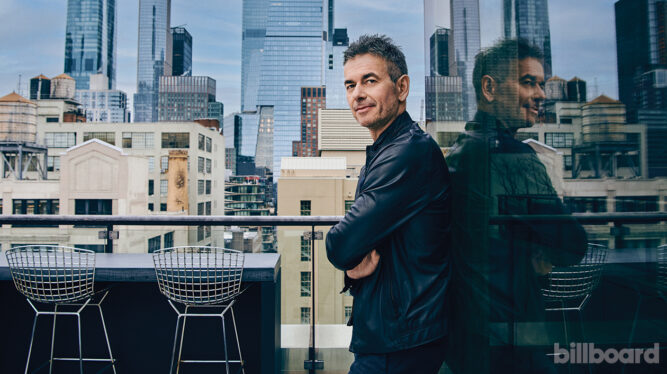These days the music industry sometimes seems like a media business version of “Trading Places” in which every label wants to be a distributor and every distributor wants to become a label.
On March 7, Warner Music Group disclosed its interest in buying the French digital music distributor Believe, but all the label groups are focusing more on the distribution game – think Sony Music’s 2021 acquisition of AWAL and Universal Music Group’s October consolidation of Virgin Music and Ingrooves. At the same time, distributors are offering more of the services that only labels used to provide, including radio promotion and different kinds of marketing.
From the perspective of an independent creator, these two once-separate sectors have moved close enough that they’re competing – the majors are offering more flexible contracts that allow artists to keep their copyrights, while distributors are providing advances and an array of services to successful acts. For anyone who was in the industry before streaming became the standard, this seems like the music business’ Reese’s moment: You got your distribution in my label! You got your label in my distribution! To outsiders and young creators though, the distinction might not even make that much sense in the first place. Behind all the complicated corporate org charts, isn’t Sony just investing in, marketing and distributing Bad Bunny’s music (through The Orchard), just as it invests in, markets and distributes Beyoncé’s (on Columbia)?
Sort of. Companies spend less, and make less, on the music they distribute, while acts signed to labels represent bigger bets both in terms of investment and potential upside. Distribution is steadier, while the label business involves more risk and some very profitable successes that more than make up for them. That’s not new. What is new, though, is how what was once a binary choice has become more of a question of finding the right point on a spectrum of risk and reward that has a traditional label deal at one end, distribution on the other and plenty of options in between.
It’s easy to understand why distributors are offering services that were once solely the domain of labels – pure online distribution has always been a low-cost commodity business, and label services offers are one way to get better margins. But what about the opposite? Why are labels getting into a lower-profit business that essentially endangers the best part of their existing business? Especially as label deals get less standard, companies make higher margins on acts that are early in their careers, before they score the success that gets them the leverage to negotiate a better deal.
Understanding why the major label groups are investing so much in a less profitable sector than the one they’re in requires seeing the issue like a media executive in the Internet Age, which is to say through the lens of disruption. This is the idea that companies which pioneer a good-enough product or service at a much lower cost will eventually challenge the market leaders – think of Netflix and cable television, for example. Although the theory isn’t as simple or as applicable as technology executives say it may well apply here: The market share of recorded music from traditional labels is slowly but steadily shrinking, in favor of distributors. The good news for the major labels is that much of that shift involves distributors they own, including The Orchard, owned by Sony, which raised its U.S. market share from 1.5% in 2021, to 7.1% in 2022, to 8.7% in 2023, according to Luminate. Much of that business comes from Bad Bunny, of course, but the company already has another bona fide Latin music superstar in Peso Pluma.
The labels basically just want to disrupt their own businesses before other companies can. If you think this kind of change is inevitable, it’s worth running toward it. (The music business has a reputation for being fearful of technology because it took so long to embrace the internet, but the business school idea of disruption doesn’t apply to pirated music; Napster wasn’t offering another product – it was offering the same product illegally.)
The second reason companies are buying distributors is, as MUSIC founder and CEO Matt Pincus recently told Billboard, “it solves a real stack problem for them.” Pincus was talking specifically about Warner, which like all label groups focuses on trying to break and market stars. A “stack” – programmer-speak for underlying technology – would let the company serve beginning creators and more emerging ones, as well as stars and a few artists that it wants to develop into stars. Warner already does this with ADA, which distributes independent labels, but ADA has tended to focus on a moderate number of mid-size indies, rather than a larger number of smaller ones.
But the most important reason labels are investing more on distribution could be the sector’s potential to serve as a kind of talent farm system. In the movies, label executives discover artists in bars or office auditions, but that hasn’t been the dominant way of doing business for a generation. These days, even beginning creators are distributing their music online, starting their careers on their own rather than trying to be discovered. Which means that by the time a major label gets interested in them, they may already have a deal. Since it’s easier to sign an artist who’s already involved with another division of the company, it makes sense to cast the biggest net possible. This is a defensive move, too: Now that Sony and Universal have big distribution businesses that can potentially serve as talent pipelines, Warner arguably needs one, too.
For that matter, the same applies to Believe. Most indie creators want to start their careers with basic distribution deals – but few of them want to stop there. Believe could be much more attractive to creators if it could offer them a place to grow to as well as services to grow into.
https://www.billboard.com/pro/record-labels-competing-distributors-options-creators/



